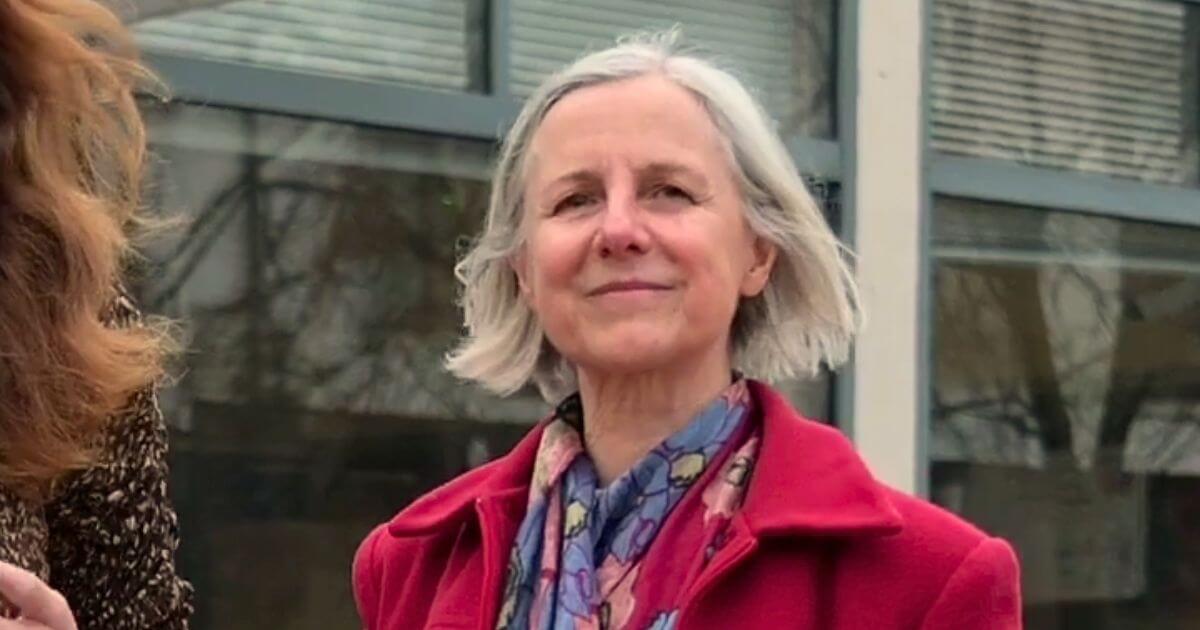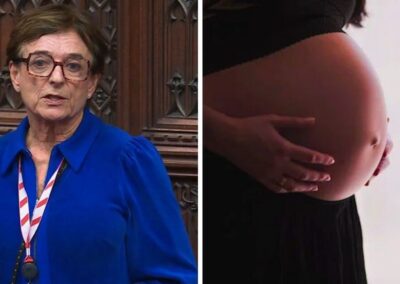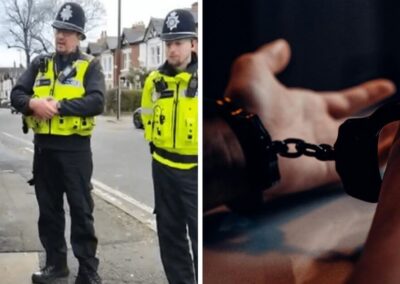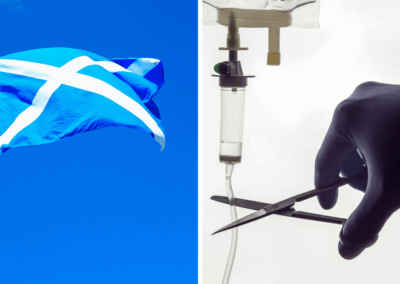A pro-life campaigner charged with a public order offence, whose case has been highlighted by the US Government, has blasted the UK as an “international embarrassment” for suppressing free speech and shutting down pro-life protests.
Dorset pensioner Livia Tossici-Bolt, who is being prosecuted for holding up a sign within an abortion clinic buffer zone reading “Here to talk if you want”, said “It deeply saddens me that the UK is seen as an international embarrassment when it comes to free speech”.
Tossici-Bolt’s words come after the US Government department, the Bureau of Democracy, Human Rights and Labor (DRL), said it was “concerned” about the status of freedom of expression in the UK in the light of her case.
The pensioner from Dorset, who is a former medical researcher at Southampton’s University Hospital Trust, has been accused of violating the local public space protection order (PSPO) in place around the British Pregnancy Advisory Service abortion clinic in Bournemouth.
Local authorities issued a Fixed Penalty Notice, which Tossici-Bolt refused to pay, claiming that she did not breach the PSPO, and had the right, under Article 10 of the Human Rights Act, which protects freedom of speech, to offer consensual conversations.
After posting on X “We are concerned about freedom of expression in the United Kingdom”, the US Government department, DRL, outlined their concerns regarding Tossici-Bolt’s case.
“While recently in the UK, DRL Senior Advisor Sam Samson met with Livia Tossici-Bolt, who faces criminal charges for offering conversation within a legally prohibited “buffer zone” at an abortion clinic. We are monitoring her case. It is important that the UK respect and protect freedom of expression”, the DRL posted.
“I’ve been dragged through court merely for offering consensual conversation”
The Telegraph reported that a source familiar with trade negotiations, referring to the DRL’s comments about Tossici-Bolt’s case on X, told the paper there should be “no free trade without free speech”. The paper referred to this as “a stance” that is “thought to have become a point of contention between the two nations”.
Tossici-Bolt responded to the intervention by criticising the “increase of censorship” in the UK, which she called “tragic”. She said “’I am grateful to the US State Department for taking note of my case. Great Britain is supposed to be a free country, yet I’ve been dragged through court merely for offering consensual conversation”.
Tossici-Bolt added “’Peaceful expression is a fundamental right – no one should be criminalised for harmless offers to converse”.
“It is tragic to see that the increase of censorship in this country has made the US feel it has to remind us of our shared values and basic civil liberties”.
Tossici-Bolt said a police officer told her someone had complained about her presence after she had been standing opposite the Bournemouth clinic for two hours on 2 March. She believes the police could not provide a legitimate reason for her to leave and could not “see how someone standing there can be seen as harassment and intimidation”.
She added “My signs are solidarity signs. I am just there to offer support. I rejoice when a life is saved. People can say yes or no when they see me”.
“I always made sure I did not come across as aggressive. I always try and do it in a loving way. I never tell people to terminate. If they decide to go ahead with the abortion then we can offer support afterwards”.
Cases highlighting a lack of clarity with abortion buffer zone legislation
Jeremiah Igunnubole, legal counsel for ADF UK, who is supporting Tossici-Bolt’s legal defence, was critical of the UK’s status as “a bastion of free speech”, saying “We cannot consistently claim the UK is a bastion of free speech when law-abiding citizens like Livia are prosecuted for nothing other than peacefully offering to speak to people”.
“It is right for the US State Department and JD Vance to warn the UK that censorship is antithetical to freedom, democracy, and societal flourishing”.
A verdict on Tossici-Bolt’s case is due on Friday 4 April.
Tossici-Bolt’s case is not the first to highlight the issues of free speech, censorship and abortion buffer zones, which came into force in October 2024 outside abortion clinics in England and Wales, criminalising offering vital support to women, and amid confusion about precisely what activities are prohibited outside abortion clinics.
Local buffer zones are already being subjected to legal challenges, with one woman, Isabel Vaughan-Spruce, arrested twice for silently praying outside an abortion clinic, receiving a £13,000 payout in acknowledgement of her unjust treatment.
In another high-profile case, a priest was charged for allegedly breaching an abortion buffer zone by praying silently and holding a sign with the words “praying for freedom of speech” near a closed abortion clinic in Birmingham. He also faced a further charge for an “Unborn Lives Matter” sticker on his car, which was parked nearby. The Crown Prosecution Service eventually dropped the charges against Fr Gough but made it clear that they could be reinstated.
A military veteran, Adam Smith-Connor, who prayed silently near an abortion clinic in Bournemouth for his son whom he lost through an abortion that he had paid for, was found guilty of breaching a local abortion buffer zone in Bournemouth. This was described as a “thoughtcrime” and “the first conviction of its kind in modern British history”.
Spokesperson for Right To Life UK, Catherine Robinson, said “Livia Tossici-Bolt was doing nothing more than offering support in a non-confrontational, peaceful way, and the fact that she is on trial at all is both disturbing and shortsighted. Yet the worrying lack of clarity in the law could mean others like Livia are interrogated or charged, as has already been seen in the cases of Isabel Vaughan-Spruce and Adam Smith-Connor”.
“It cannot be right that buffer zones are criminalising activities that are both peaceful and helpful, providing vital support to women when they need it most. It is vital that freedom of thought and speech, which are essential elements in a healthy democracy, are protected inside and outside these buffer zones”.












